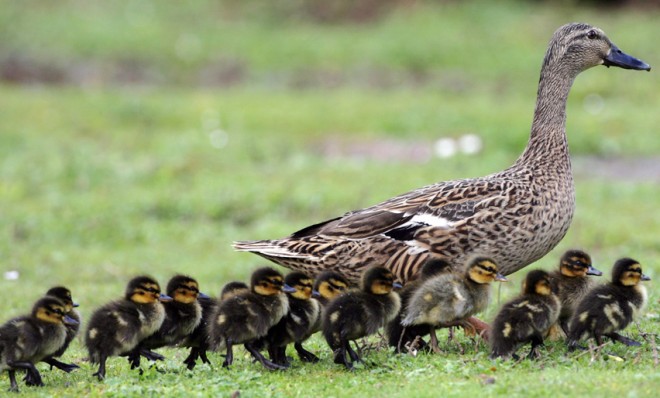3 fascinating facts about English's most adorable suffix, -ling
Surely you've heard of ducklings. But what about viperlings, frumberdlings, and deathlings?


A free daily email with the biggest news stories of the day – and the best features from TheWeek.com
You are now subscribed
Your newsletter sign-up was successful
Is there any suffix more adorable than the lovely little –ling? It gives us yearlings and starlings, downy ducklings and goslings, affectionate darlings and siblings, and comforting tender dumplings. But –ling hasn't always been so little and cute. It used to be far more productive than it is now, and its connotations weren't always adorable.
1. JUST A GENERAL NOUN-MAKER
In Old English, when a –ling attached to another word X, it had the abstract meaning "something that has to do with X." An earthling, for example, was a ploughman or someone who worked the earth (the science fiction meaning came much later). A farthling (feorðling in Old English) was something that was a fourth of something else. A sibling was someone who was a sib — an old word for blood relative. A youngling was a young person, but an even better word for that was frumberdling, or "first-beard-ling," a teenager just getting some peach fuzz.
The Week
Escape your echo chamber. Get the facts behind the news, plus analysis from multiple perspectives.

Sign up for The Week's Free Newsletters
From our morning news briefing to a weekly Good News Newsletter, get the best of The Week delivered directly to your inbox.
From our morning news briefing to a weekly Good News Newsletter, get the best of The Week delivered directly to your inbox.
2. SMALL BUT NOT CUTE
In Middle English, –ling continued to be used as a general noun-maker, but it became increasingly associated with smallness as it came to be attached to things having to do with babies (suckling, nurseling, weanling, foundling, duckling, gosling, toadling). While some of these things were indeed adorable, the most productive use of the suffix was to show disdain. A worldling was someone too occupied with wordly, material matters. To speak of humans as deathlings was a way to bring them down a peg by emphasizing their mortality. Then there were the wagelings, hirelings, underlings, weaklings, softlings, and even lukewarmlings (those lacking in zest). To call someone a wealthling or a richling conveyed a contemptuous attitude not covered by "wealthy" or "rich." Pretentions of all sorts were skewered with a –ling. There were witlings, wiselings, saintlings, princelings, popelings, poetlings, authorlings, and criticlings. When you called a monk with a shaved head a shaveling, you weren't being nice.
3. JUST LITTLE
The –ling suffix was especially productive in the 1800s when all sorts of baby animals got playfully –linged (waspling, viperling, storkling, spiderling, sharkling, oysterling, mouseling). It could also imply the smallness of things without any derogatory sense (townling, letterling, balladling), and it even took on a primarily affectionate tone. Motherling was term of endearment for a time. Now –ling isn't quite as productive anymore, but it sure is cute.
A free daily email with the biggest news stories of the day – and the best features from TheWeek.com
Arika Okrent is editor-at-large at TheWeek.com and a frequent contributor to Mental Floss. She is the author of In the Land of Invented Languages, a history of the attempt to build a better language. She holds a doctorate in linguistics and a first-level certification in Klingon. Follow her on Twitter.
